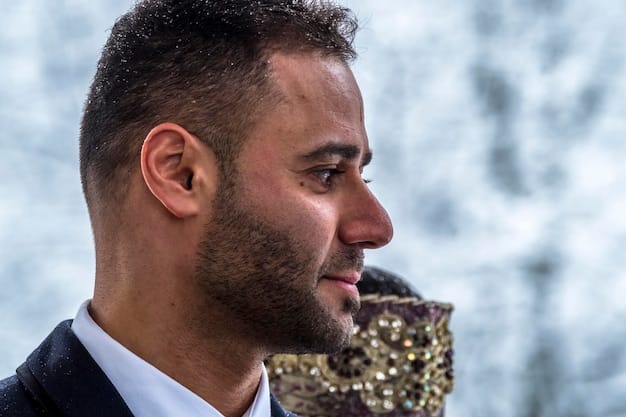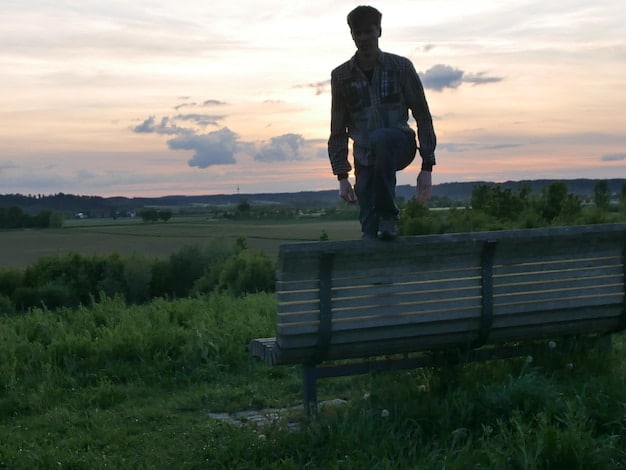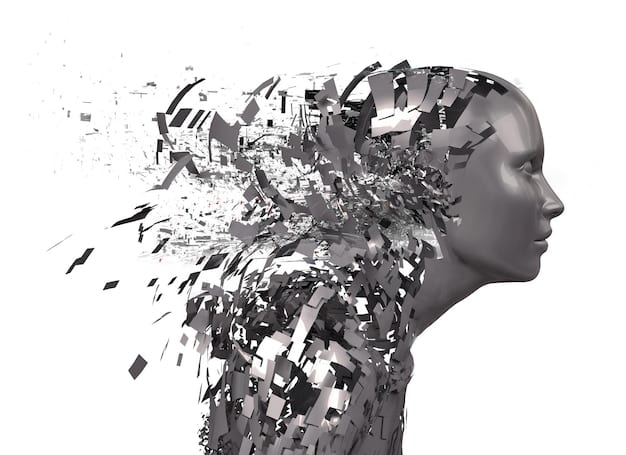Understanding Mental Health in Male Veterans: Resources and Support

Understanding the Unique Mental Health Challenges Faced by Male Veterans: Resources and Support involves recognizing specific stressors like combat trauma, PTSD, and reintegration difficulties. Access to tailored resources and support is crucial for their well-being.
The transition from military service to civilian life can be a difficult journey, especially concerning mental health. Male veterans often face unique challenges that require specialized understanding and support.
Understanding the Unique Mental Health Challenges Faced by Male Veterans: Resources and Support are essential for ensuring their well-being and successful reintegration into society. This article delves into these challenges and highlights the resources available to help.
Understanding the Unique Mental Health Challenges Faced by Male Veterans
Male veterans encounter a complex set of mental health issues arising from their military experiences. Recognizing these specific challenges is the first step toward providing effective support and resources tailored to their needs.
Post-Traumatic Stress Disorder (PTSD)
PTSD is a common mental health condition among veterans, often triggered by exposure to traumatic events during service. The symptoms can significantly impact daily life.
- Flashbacks and nightmares related to traumatic events.
- Avoidance of places, people, or activities that trigger memories of the trauma.
- Hyperarousal, including irritability, difficulty sleeping, and exaggerated startle response.
- Negative thoughts and feelings, such as guilt, shame, and detachment from others.
Combat-Related Stress
The intense stress of combat can lead to various mental health issues beyond PTSD, affecting veterans long after they leave the battlefield.

In conclusion, understanding the unique mental health challenges faced by male veterans begins with recognizing the prevalence and impact of conditions like PTSD and combat-related stress, paving the way for targeted support and effective interventions.
Common Mental Health Conditions Among Male Veterans
Beyond PTSD, male veterans are susceptible to a range of other mental health conditions that can significantly affect their quality of life. Identifying and addressing these conditions is crucial for comprehensive care.
Depression
Depression can manifest differently in veterans, often intertwined with other mental health conditions and life stressors.
- Persistent feelings of sadness, hopelessness, or emptiness.
- Loss of interest in activities once enjoyed.
- Changes in appetite and sleep patterns.
- Fatigue and decreased energy levels.
Anxiety Disorders
Anxiety disorders, including generalized anxiety disorder and panic disorder, are prevalent among veterans and can impact their daily functioning.
- Excessive worry and fear about everyday situations.
- Panic attacks characterized by sudden feelings of intense fear and physical symptoms.
- Social anxiety leading to avoidance of social situations.
- Difficulty concentrating and restlessness.
Substance Use Disorders
Veterans may turn to substance use as a way to cope with mental health symptoms, leading to addiction and further complications.
Traumatic Brain Injury (TBI)
TBI can occur from blast exposure or other injuries during military service. It can affect cognitive, emotional, and physical functioning.

In conclusion, understanding the common mental health conditions beyond PTSD, such as depression, anxiety disorders, and substance use, is essential in providing comprehensive mental healthcare to male veterans.
The Impact of Military Culture on Mental Health
Military culture, with its emphasis on stoicism and self-reliance, significantly influences how male veterans perceive and address mental health issues. This culture can present barriers to seeking help and accessing needed support.
Stigma and Barriers to Seeking Help
The stigma surrounding mental health within the military can deter veterans from seeking treatment due to fear of judgment or career repercussions.
Transitioning to Civilian Life
Adjusting to civilian life after military service involves significant lifestyle, identity, and social adjustments, which can exacerbate mental health issues.
In summary, military culture’s influence on mental health, compounded by the challenges of transitioning to civilian life, necessitates tailored interventions that normalize help-seeking and address identity reconstruction for male veterans.
Resources and Support for Male Veterans’ Mental Health
Numerous resources and support systems are available to assist male veterans in addressing their mental health needs. Awareness and access to these services are crucial for improving their well-being.
Veterans Affairs (VA) Healthcare
The VA provides a wide range of mental health services, including therapy, medication management, and specialized programs for PTSD and substance use disorders.
Community-Based Organizations
Various community organizations offer support groups, counseling, and peer support programs tailored to the needs of veterans.
- Wounded Warrior Project: Offers mental health resources, peer support, and wellness programs for veterans who have sustained injuries during their service.
- Give an Hour: Provides free mental health services to veterans and their families through a network of volunteer mental health professionals.
- Team Red, White & Blue: Focuses on connecting veterans to their community through physical and social activities, promoting overall well-being.
To summarize, access to diverse resources from the VA to community organizations is key in ensuring male veterans receive comprehensive and tailored mental health support, fostering their well-being and successful reintegration.
Promoting Mental Wellness and Resilience
Encouraging proactive mental wellness strategies can empower male veterans to manage stressors and build resilience. These strategies can enhance their quality of life and promote positive outcomes.
Self-Care Strategies
Engaging in self-care activities can help veterans manage stress, improve mood, and enhance overall well-being.
- Regular exercise: Physical activity has been shown to reduce symptoms of depression and anxiety.
- Mindfulness and meditation: Practices that promote relaxation and focus.
- Healthy diet: Eating nutritious foods can improve mood and energy levels.
- Adequate sleep: Getting enough rest is crucial for mental and physical health.
Building Social Support
Connecting with others who understand their experiences can provide veterans with emotional support and reduce feelings of isolation.
In conclusion, promoting self-care strategies and fostering social support are crucial in helping male veterans enhance their mental wellness and build resilience, equipping them with the tools for a healthier and more fulfilled life.
| Key Area | Brief Description |
|---|---|
| 🤕 PTSD & Trauma | Combat exposure often leads to PTSD, requiring specialized VA care. |
| 🫂 Social Support | Community & peer connections help veterans feel less isolated. |
| 💪 Resilience | Self-care and emotional regulation build long-term mental health. |
Frequently Asked Questions
Male veterans commonly face PTSD, depression, anxiety disorders, and substance use disorders. These can arise from combat experiences and the difficulties of transitioning to civilian life.
Military culture often stigmatizes mental health issues, discouraging veterans from seeking help. The emphasis on stoicism and self-reliance can be detrimental.
Resources include VA healthcare services, community-based organizations like the Wounded Warrior Project, and peer support groups. These provide various forms of therapy and support.
The VA offers comprehensive mental health services, including individual and group therapy, medication management, and specialized programs for PTSD and substance use.
Understanding challenges helps tailor interventions, while awareness of resources ensures veterans get effective support. Promoting self-care and social connections further enhances mental wellness and resilience.
Conclusion
**Understanding the Unique Mental Health Challenges Faced by Male Veterans: Resources and Support** is crucial for improving their quality of life and ensuring successful reintegration into society. By addressing the stigma, promoting access to resources, and fostering a supportive community, we can help veterans overcome their challenges and thrive.





